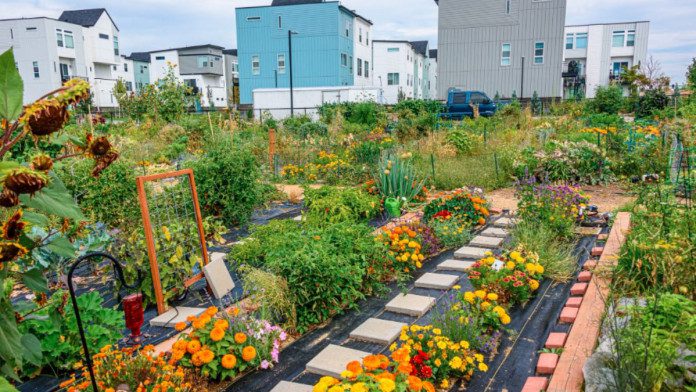News in Brief:
– Soaring food prices in Nigeria have sparked a call for urban agriculture, where people grow their own food at home.
– However, challenges like limited space in cities require innovative solutions for wider adoption.
In response to the nation’s crippling food costs, various sectors have advocated for the adoption of home farming, also known as urban agriculture. This call has gained urgency across society as staple food prices reach record highs, leaving many Nigerian households struggling to afford basic necessities.
The Lagos State government echoed this call through its Commissioner for Agriculture, Ruth Abiola Olusanya. She urged Lagos residents to get involved in some form of urban farming or at least grow something edible at home because it ca help lessen the burden for everyone.
Her message resonates strongly considering recent figures from the Nigerian Bureau of Statistics (NBS). The country’s inflation rate sits at 34.19%, with food inflation a staggering 40.87%, this is 15.62% higher than June 2023 (25.25%).
Food staples like millet, garri, guinea corn, yam, have seen significant price jumps, driving up inflation. As a result, the average Nigerian household spends more on food (59%) than on any other necessity, the highest globally.
Homegrown solutions for tough times
Therefore, home farming, encouraging people to grow their own food, is now seen as a way to mitigate hardship for a growing number of Nigerians.
“Even a small patch can significantly reduce your grocery bill,” says Oluchi Ugwukozor, a self-employed single mother of two and a home gardening advocate. “Homegrown vegetables are often fresher, tastier, and free from chemical fertilisers,” she adds.
Her home garden, featuring tomatoes, peppers, and spinach, has demonstrably reduced her food costs since starting two months ago.
Oluchi’s perspective is bolstered by none other than the nation’s First Lady, Remi Tinubu. Last week, she unveiled a vegetable garden at the State House as part of her #EveryHomeAGarden initiative.
“The solution to any problem lies in everyone contributing,” the First Lady stated. “As a leader, I must set an example and plant my own garden.”
Mrs. Tinubu’s garden boasts vegetables like spinach, waterleaf, bitter leaf, Ewedu, lemongrass, scent leaf, and okro. She believes the initiative will ‘enhance communal living and support the federal government’s food security campaign.’
Challenges in urban environments
However, implementing such initiatives in densely populated urban areas like Lagos state, for exmple, presents a unique challenge: limited space.
Mr. Caleb, a civil servant residing in Okokomaiko, a densely packed area of the state, highlights this concern.
“It’s a good idea, but limited space makes home gardening impractical for many,” he stated. “Many houses are crammed together with barely any space to move around, and some landlords don’t allow gardening or livestock. Additionally, the lack of secure fencing makes gardens vulnerable to theft or damage.”
This raises important considerations for promoting urban agriculture in the city, as addressing space limitations and navigating landlord restrictions will be crucial for its success.
However, despite challenges like limited space, a collective effort towards homegrown solutions offers a beacon of hope. With creative approaches, such as vertical gardening or community plots, urban environments can transform into vibrant patches of self-sufficiency.



